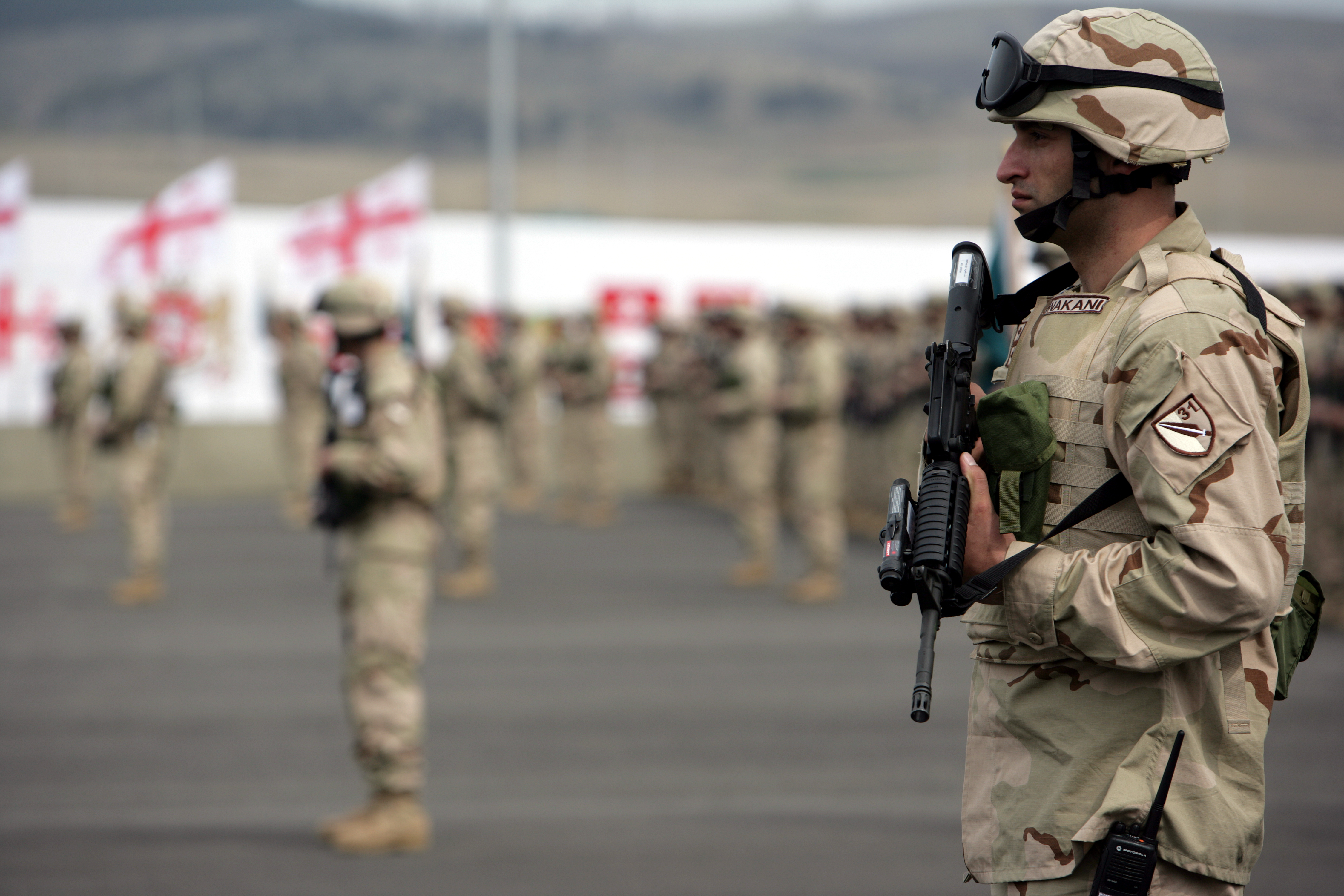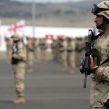
Growing Threat of Russian Influence in Georgian Army
Publication: Eurasia Daily Monitor Volume: 13 Issue: 9
By:

Since the Bucharest summit of April 2008, when the North Atlantic Treaty Organization (NATO) pledged that Georgia (and Ukraine) “will become members of NATO” (Summitbucharest.ro, April 3, 2008), the South Caucasus country has achieved a number of important milestones on its path to closer integration with the Alliance. Among the most recent have been the “Substantial Package of Cooperation,” which Georgia was granted by NATO at the organization’s 2014 Wales summit; the opening of the NATO-Georgia Joint Training and Evaluation Center (JTEC) in 2015 (Civil Georgia, August 27, 2015); as well as the signing of a contract with Alliance-member France for the purchase of a high-tech anti-aircraft system last June (see EDM, June 29, 2015). And though few believe Georgia will receive a Membership Action Plan from NATO at the upcoming Warsaw summit later this year, Georgian experts and politicians like parliamentarian Viktor Dolidze expect even deeper cooperation between Tbilisi and the Alliance after Warsaw (Author’s interview, December 26, 2015).
Despite these successes, some military officers intimately familiar with the situation in the Georgian army are convinced that the “exterior façade” is hiding serious faults. And these concealed problems may undermine the transformation of the Georgian armed forces, prevent the military’s achievement of NATO standards, as well as derail Tbilisi’s multi-year efforts to increase the compatibility of the its army with the militaries of Alliance member countries. Moreover, the risk of significant infiltration of the Georgian armed forces by the Russian security services could further block the military reforms started by Georgia’s pro-Western former president, Mikheil Saakashvili.
Members of the Atlantic Council of Georgia Batu Kutelia and Zurab Agladze believe these risks have pronouncedly increased after the change of government in Georgia following the 2012 parliamentary elections. Soon after coming to power, the Georgian Dream coalition dismissed many of those army officers who received their education in the West. This was done under the pretext that these military personnel supported former president Saakashvili and his team, Agladze has noted, and they were largely replaced by previously dismissed Soviet- and Russian-era officers (Author’s interview, December 18, 2015).
Batu Kutelia, who headed the Georgian Foreign Intelligence Service between 2004 and 2005, told this author, on December 18, 2015, that the Soviet- and Russian-trained army officers tend to lack the skills—such as knowledge of English—to work with NATO countries. But even more dangerous “is the fact that many of them received their education in Russia. Some even served in the Soviet and Russian armies. While I served on the National Security Council of Georgia [2011–2013] under president Saakashvili, the new minister from the Georgian Dream coalition took over the Ministry of Defense and requested the reinstatement of 27 former Soviet and Russian officers in their military ranks,” Kutelia asserted. These individuals included the commander of a reconnaissance battalion as well as officers who served in the armed forces of the Soviet Union and Russia in the Baltic countries. “There is a risk that [while serving in the Georgian military] they are still cooperating with the Russian security services and will not only hand over important national security information to Moscow, but will also intimidate and curb the influence of the officers educated in the West, including the United States, thereby increasing the net Russian influence in the Georgian army. The pro-Western officers have been forced to compromise their values in order to avoid dismissal from the army,” Kutelia warned.
According to the former security official, the current Georgian leadership ignores the principles of “personnel management” and has no coherent armed forces policy, which simplifies the Russian security services’ task of influencing the reform processes in the Georgian army, from within or from the outside. According to Kutelia, it is no coincidence that some former officers who were dismissed during the reforms in the previous decade have now acquired informal influence, even though they occupy no positions in the military. Notably, he pointed to the example of the former commander of the Georgian National Guard, General Koba Kobaladze, who was accused of preparing a coup, but now is a deputy of the Tbilisi City Council from the Georgian Dream coalition (Kavkazsky Uzel, May 18, 2009). “The turn of the army back to the Soviet model started after the absolutely unacceptable statement of the former prime minister Irakly Garibashvili [November 2013–December 2015], who said that he intended to dismiss all officers from the army who joined the armed forces during Saakashvili’s presidency,” Kutelia reminded (Author’s interview, December 18, 2015).
Zurab Agladze, who served as the commander of the Georgian ground forces between 2007 and 2009, regards “clans and nepotism” in the army as a destructive problem that returned with the reinstatement of the “Soviet generation” of officers. “In the NATO member countries, the government spends 50 percent of the defense budget on the maintenance and supplies of the troops. The other 50 percent is spent on the development of the army. Currently, the Ministry of Defense of Georgia provides almost no military training, it does not acquire new weapons systems. They do not even have blank cartridges for military exercises; they expend the old stocks. At the same time, the bureaucracy has grown tremendously. Already 2–3 times more people serve on the Georgian General Staff than in the general staffs of the NATO countries of comparable size,” he said (Author’s interview, December 18, 2015).
The existence of two parallel coordinating structures for defense and security—the National Security Council under the president and the Council for Crises Management under the prime minister—is another serious problem that complicates the cooperation of the Georgian armed forces with NATO. According to Kutelia, “This creates confusion even when making operational decisions, to say nothing of the implementation of a general defense policy.” Parallel coordinating structures for defense and security also preclude a coherent policy on the development of the armed forces, making it difficult to decide on proper equipment procurement and budgeting. “Buying a small number of anti-aircraft missiles and radars in France will remain only a face-saving, one-time act when the government lacks a strategy and vision for the army’s development,” Kutelia argued (Author’s interview, December 18, 2015).
Both Kutelia and Agladze believe that despite some mistakes made by the authorities during the Saakashvili era, the period from 2004 until the Russian invasion on August 7, 2008, saw the most successful reforms of the Georgian army. Not only did Georgia’s government spend substantial funds toward this end, but even more importantly, it had a clear goal—achieving military-to-military compatibility with NATO members and boosting the number of Western-educated officers in the armed forces.
But now, it seems, this process has stopped and, in some aspects, has even been reversed. This may increase the existential risks for the country, which is fighting to preserve its independence and achieve integration into Euro-Atlantic structures.




